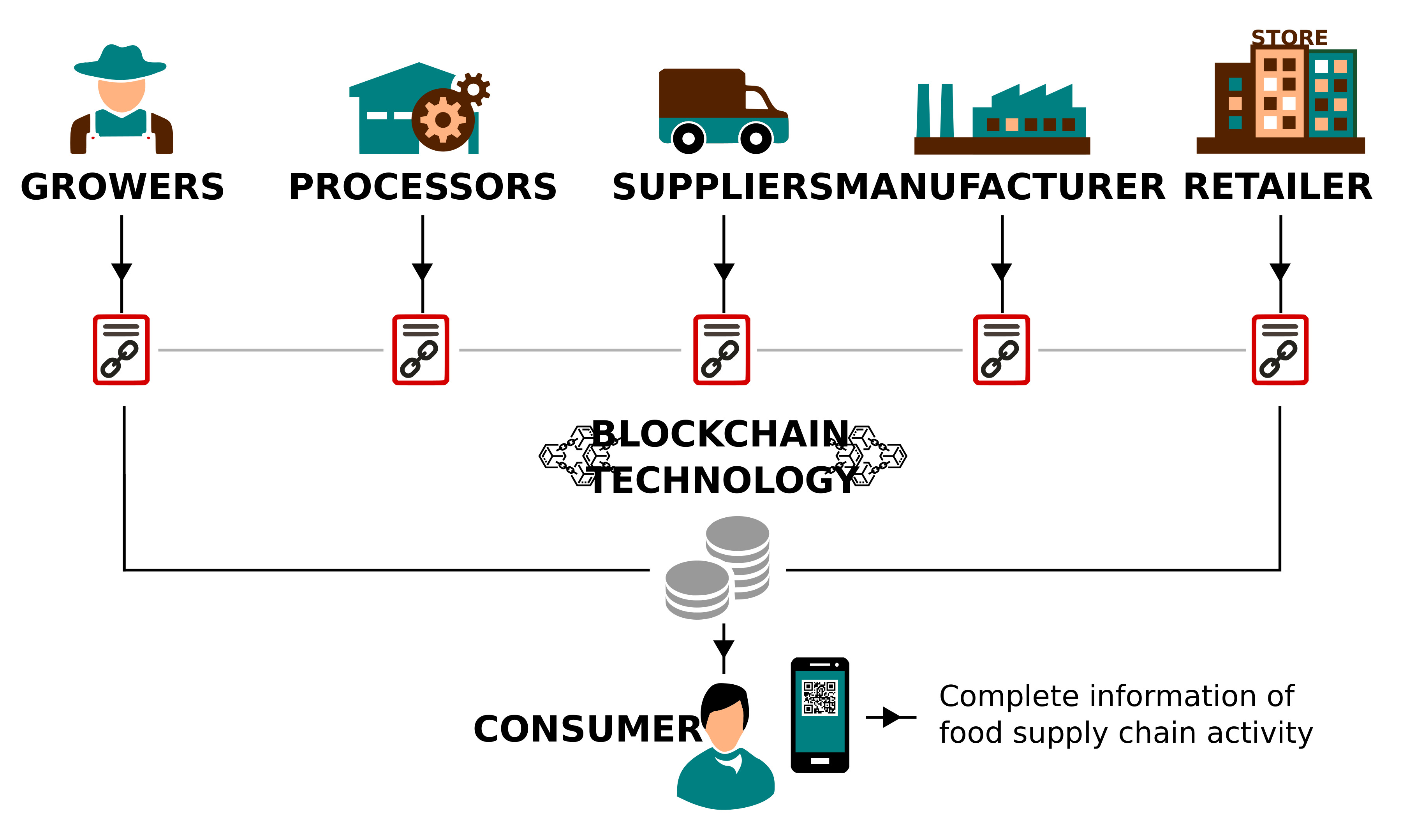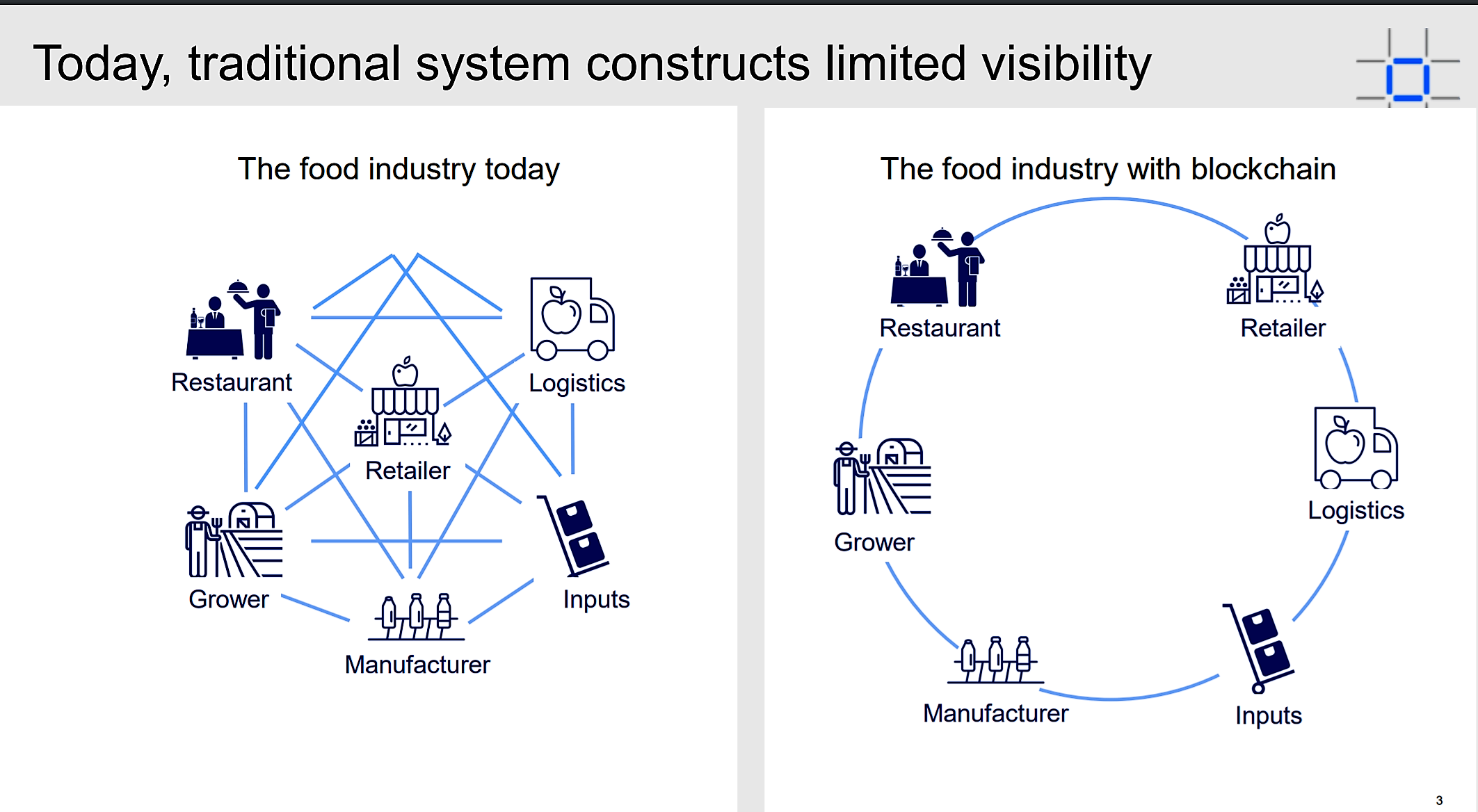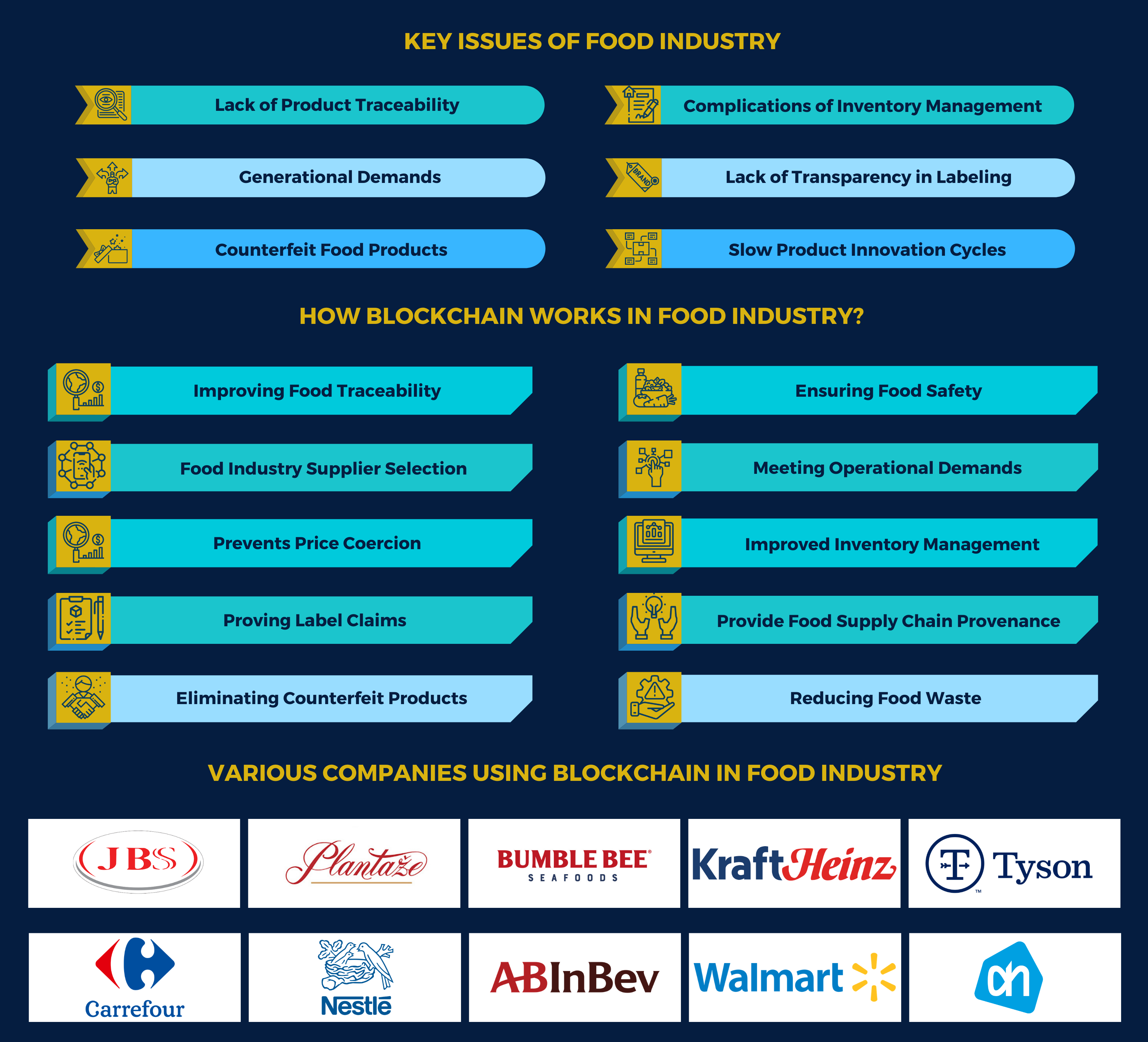SERVICES BY US
Restaurants & Blockchain
Blockchain technology can be useful in Restaurants:
Food Safety and Traceability: Blockchain can provide a tamper-proof ledger of food products from the farm to the table. With blockchain, restaurants can track the entire supply chain and ensure that the ingredients they receive are authentic and safe to consume. By using blockchain to track food safety, restaurants can reduce the risk of foodborne illnesses and build trust with their customers.

- Loyalty Programs: Blockchain technology can help restaurants create loyalty programs that incentivize customers to return. By using cryptocurrency or other digital assets, restaurants can create a more engaging and seamless rewards system that allows customers to redeem their rewards across multiple locations or platforms. Additionally, blockchain-based loyalty programs can reduce the risk of fraud and abuse, providing a more secure system for customers.
- Payment Processing: Restaurants can use blockchain technology to process payments more efficiently and securely. Blockchain-based payment systems can eliminate the need for intermediaries and reduce transaction fees, saving restaurants money on payment processing costs. Additionally, blockchain-based payment systems are more secure, as they use encryption to protect sensitive customer data.

Supply Chain Management: Blockchain can help restaurants manage their supply chains more efficiently by providing real-time visibility into inventory levels, delivery schedules, and vendor performance. By using blockchain to track the entire supply chain, restaurants can reduce waste and improve efficiency, while also ensuring that they are complying with regulations and industry standards.
Reviews and Ratings: Blockchain technology can be used to create a decentralized review and rating system for restaurants. By using blockchain, restaurants can create a more trustworthy and transparent rating system, as users cannot manipulate or delete reviews once they are submitted. This can help restaurants build trust with their customers and improve their online reputation.
Overall, blockchain technology can help restaurants improve their operations, increase customer satisfaction, and reduce costs. By using blockchain to manage their supply chain, loyalty programs, payment processing, and online reputation, restaurants can stay ahead of the competition and provide a better experience for their customers.

Few blockchain case studies for Restaurants:
-
Sweetgreen: Sweetgreen, a salad restaurant chain, partnered with a blockchain startup to trace the origin of their ingredients from the farm to the restaurant. They use blockchain to track each ingredient’s journey and ensure that they are organic and sustainable. By using blockchain, Sweetgreen can provide their customers with transparency and trust, which is crucial for building a loyal customer base.
-
Starbucks: Starbucks is experimenting with blockchain to track their coffee beans’ journey from the farm to the store. They use blockchain to record each step of the supply chain, from harvesting to roasting to shipping. By using blockchain, Starbucks can ensure that their coffee is ethically sourced and of high quality, which is important for their customers who care about sustainability and social responsibility.
-
Recipe: Recipe is a Korean restaurant chain that is using blockchain to create a loyalty program for their customers. They use a blockchain-based app to reward customers with cryptocurrency for visiting their restaurants and making purchases. Customers can redeem their cryptocurrency for discounts or free meals. By using blockchain, Recipe can create a more engaging and seamless rewards program that can increase customer loyalty.
-
Syncfab: Syncfab is a blockchain startup that is creating a supply chain management platform for restaurants. They use blockchain to track the entire supply chain, from ordering ingredients to delivering food to customers. By using blockchain, Syncfab can provide real-time visibility into inventory levels and delivery schedules, which can help restaurants optimize their operations and reduce waste.
-
Bistro: Bistro is a French restaurant that is using blockchain to create a decentralized review and rating system. Customers can leave reviews and ratings on Bistro’s blockchain-based app, which cannot be deleted or manipulated once they are submitted. By using blockchain, Bistro can provide a more trustworthy and transparent rating system, which can help them attract more customers and improve their online reputation.
Services categories
About us

Our goal is to help our clients achieve their online goals by providing them with customized, effective, and results-driven solutions that drive growth, increase visibility, and strengthen their online presence.
Contact info
Address office
USA, INDIA, VIETNAM
Phone